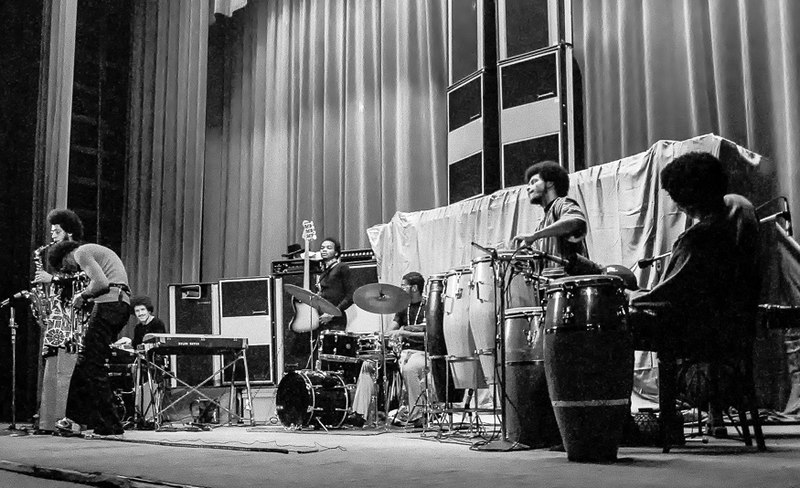
Jazz-Rock 2
Although other musicians and groups were experimenting with incorporating rock elements into jazz in the mid- to late 1960s, Miles Davis and his electric bands from the late 1960s are often considered the originators of jazz-rock. Davis's preexisting status as a jazz legend gave his early jazz-rock recordings a broad and immediate public exposure. He also pulled together groups of young but highly skilled musicians to support him in his early jazz-rock recordings. Many of those musicians became leaders and members of influential jazz-rock groups throughout the 1970s, notably guitarist John McLaughlin, pianists Joseph Zawinul, Chick Corea, Herbie Hancock, and Keith Jarrett, saxophonist Wayne Shorter, and drummers Billy Cobham and Lenny White. We discuss them later in this lesson.
Miles Davis first began experimenting with jazz and different music styles in his 1969 album In A Silent Way. For example, the song " Shhh/Peaceful" incorporates the "straight rhythm" (performed throughout the piece), which is more characteristic of rock than of traditional jazz. In addition, an amplified guitar (starting at 00:05) is also more typical of rock. But it was not until his double album Bitches Brew (1970) that he committed himself entirely to the style, as heard in previous excerpts. Listen to him play the song "Bitches Brew" in the YouTube video below.

Miles Davis performing Bitches Brew (Live In Copenhagen, 1969)






